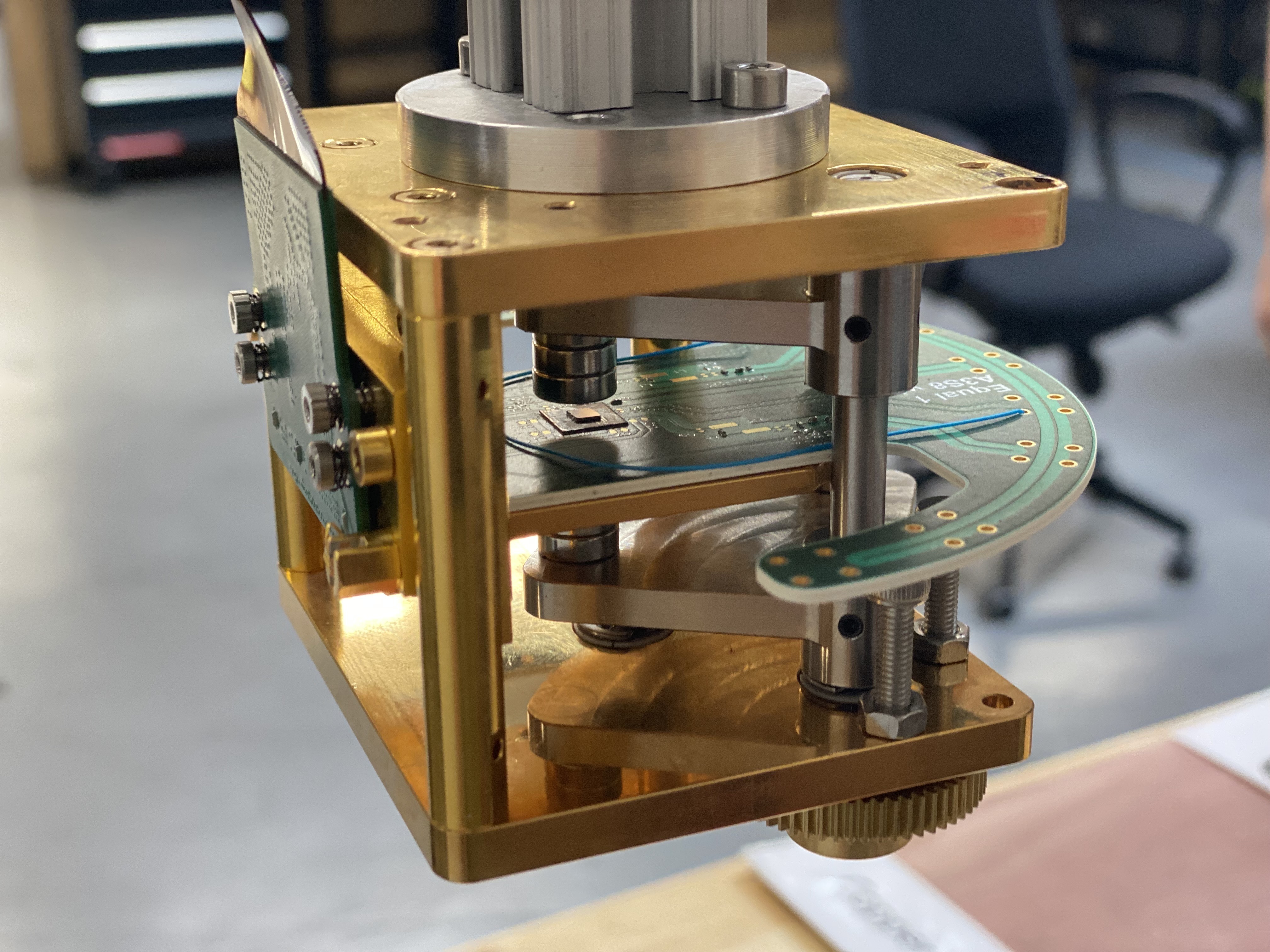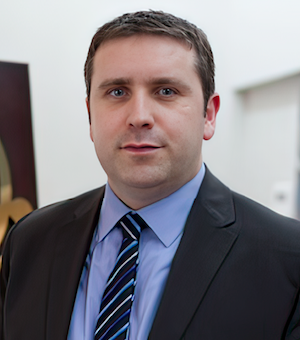University College Dublin spinout Equal1 has created a programmable quantum chip manufactured on a low-cost foundry CMOS process.

If quantum computing is to become truly useful, it needs to be scalable. Many university spinouts are working on solving the challenges around this but University College Dublin spinout Equal1 says it has an edge: it’s integrated an entire quantum system on a single chip.
The technology builds on existing semiconductor CMOS technology, integrating qubits with all supporting control and read-out electronics on the same integrated circuit through a commercial silicon process.
Chief executive Jason Lynch was drawn to quantum computing thanks to the impact it promises to have on almost everything. But Lynch — who became CEO in 2022 after three years as chief operating officer, having earlier worked for analogue and integrated circuits developer Analog Devices — is particularly excited about the potential that quantum computing can provide in the artificial intelligence industry.
“AI is a huge interest at the moment but there is a clear bottleneck coming in in terms of compute power that is available and needed to require massing learning models,” says Lynch. “We may run into a situation in the future where we run out of compute power to train these models, but quantum computing offers a way to scale that and build upon complex AI models.”
Read more about Ireland’s ecosystem in our report and other spinout case studies:
Spinout factories: why Ireland’s universities punch above their weight
AudioSourceRe pitches sound separation using AI
No more uncomfortable trips to the bathroom: how ProVerum tackles BPH
Equal1, founded in 2017, has been making headlines for a while. In 2020, it was listed as a company to watch as part of the Spinoff Prize by Nature Research and Merck.
“Qubits are the building blocks of a quantum computer,” explains Lynch. “There are various companies that are trying to scale these qubits with around five differing approaches in solving this. But we believe our approach is far more scalable and will enable us to get a real-world useful quantum computer to market.”
The technology has come a long way since Richard Feynman first postulated the idea of a quantum computer in the early 1980s, Lynch notes, and “we are at an inflection point where we are seeing quantum computing as a potential business rather than a scientific project”. This has led to excitement amongst investors leading to capital “coming in from VCs, governments and funding agencies,” he adds.
Equal1 itself secured $11m in 2021 with support from the European Innovation Council’s Accelerator Programme. Its cap table includes B2Venture, Matterwave Ventures and Atlantic Bridge, and the money has gone towards achieving technological breakthroughs.

Lynch explains: “We have demonstrated some significant milestones. We have three quantum test chips developed through this funding and have integrated them into a number of machines.”
Equal1’s next challenge is tackling decoherence — a major challenge in quantum computing because at some point the environment always changes qubits to the point of data loss. Lynch says: “One of the characteristics of a quantum computer is the need for extremely low temperatures so that there is less background noise. The qubits tend to be sensitive so part of the challenge is to put the qubits into an environment that’s quiet and pure enough so that they can behave in a quantum device.”
He adds: “So we have developed a number of generations of our product through the funding we have received and will continue to develop that.”
The next milestone for Equal1 over the course of the year will be to expand the number of qubits “to demonstrate that we can do error correction” and through there, “unique and differentiated error correction techniques” — error correction refers to the process of protecting information from noise.
Investors with expertise, not just money
Investors who carry the correct expertise are vital for any quantum computing startup, Lynch stresses. “We need investors who understand the team and the technology and can understand the promise of quantum computing, which can be difficult to find.
“Atlantic Bridge, in particular, has played an important investment role from the very beginning through their seed fund. Other investors such as Enterprise Ireland and Matterwave came on board later which was great to see.”
He continues: “These investors have been massively helpful for us in terms of growing our team, our technology and research in quantum physics and the materials side of things — such as silicon and software production. There is a massive payoff here if we get this right but it is undeniable a lot of work is needed to get this scalable quantum computer.”
The university, too, has been playing a vital role in the spinout’s development. “The relationship allows us to work closely with research partners allowing us to find new and better ways of handling qubits,” says Lynch.
He is keen to continue nurturing that relationship. “The relationship we have with the university is very strong. We are located on its ground, and we have strong connections making it a key part of our success, especially with growing our team to 30 people and pipelining all the talent coming out from it,” he says.
And while Equal1 hopes to solve a significant challenge around quantum computing, that doesn’t mean there will be nothing left to innovate. Lynch concludes: “It is a really exciting space. There are many resources online to start to learn about it and there will soon be a massive wave of innovation and opportunity in this field, so it is extremely interesting to see where we are going and what the industry can bring for the applications that are being developed.”
Read more about Ireland’s ecosystem in our report and other spinout case studies:
Spinout factories: why Ireland’s universities punch above their weight
AudioSourceRe pitches sound separation using AI
No more uncomfortable trips to the bathroom: how ProVerum tackles BPH








